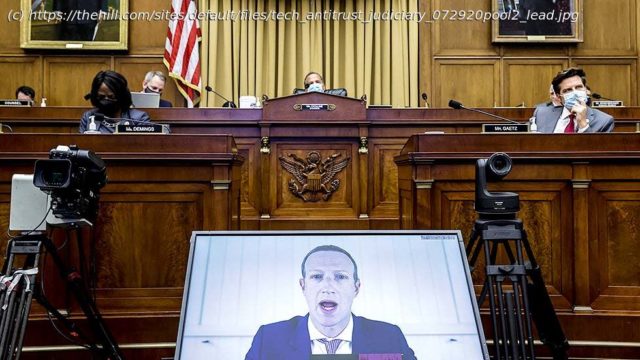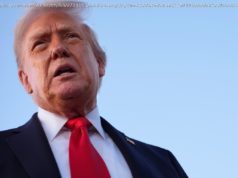The long anticipated confrontation between the chief executives of America’s largest tech firms and Congress produced several memorable moments Wednesday and gave important insight into…
The long anticipated confrontation between the chief executives of America’s largest tech firms and Congress produced several memorable moments Wednesday and gave important insight into the House Judiciary subcommittee on antitrust’s investigation into competition in digital marketplaces.
The hearing — featuring Amazon’s Jeff Bezos, Apple’s Tim Cook, Facebook’s Mark Zuckerberg and Google’s Sundar Pichai teleconferencing in — went more than five hours, with each lawmaker on the panel getting three rounds of questioning.
Here are the five biggest takeaways from Wednesday’s hearing.
Lawmakers have collected a lot of info from Big Tech’s competitors
The subcommittee’s in-depth information gathering — which involved reviewing more than a million documents and hours of interviews — paid dividends during Wednesday’s testimony.
Internal communications were brought up multiple times to stop the executives from dodging topics and to paint them into corners.
In one early exchange, House Judiciary Committee Chairman Jerrold Nadler (D-N. Y.) questioned Zuckerberg over internal emails with former Chief Financial Officer David Ebersman discussing Facebook’s potential acquisition of Instagram in 2012.
According to the emails, first reported by The Verge, Zuckerberg wrote that his motivation for acquiring Instagram was a “combination” between goals Ebersman had previously listed to “neutralize a potential competitor” and to “integrate their products with ours in order to improve our service.”
Rep. Lucy McBath (D-Ga.) at another point during the hearing used an internal document from Apple executive Phil Schiller to press Cook on promoting the company’s proprietary screen time app while removing competitors.
Several questions aimed at Amazon cited interviews with third party sellers on the platform, while Rep. Mary Gay Scanlon (D-Pa.) hit Google on ad targeting children, citing several reports.
The targeted questioning points toward a well crafted case by the subcommittee, and illustrated Congress’s tightened focus on tech companies.
Bezos’s first hearing
Wednesday was Bezos’s first appearance before Congress, and despite not being asked questions early on, he came under heavy questioning.
Bezos faced repeated questions about Amazon’s dual role as a marketplace and a provider of goods, as Democrats on the panel zeroed in on whether the company used third-party seller data to make competing products.
The most critical questioning came from Rep. Pramila Jayapal (D-Wash.), whose Seattle-area district contains Amazon’s headquarters. In response to a repeated line of question on its use of nonpublic third-party seller data, Bezos said that Amazon had a policy prohibiting such practices.
“But I can’t guarantee you that policy has never been violated,” Bezos added.
Bezos later acknowledged that Amazon may use “aggregated” data from as few as two sellers while facing questioning from Rep. Kelly Armstrong (R-N. D.).
Rep. David Cicilline (D-R. I.), the chairman of the subcommittee, also questioned whether it was an inherent conflict of interest for Amazon to produce and sell products that compete directly with third-party sellers, “particularly when you, Amazon, set the rules of the game.






